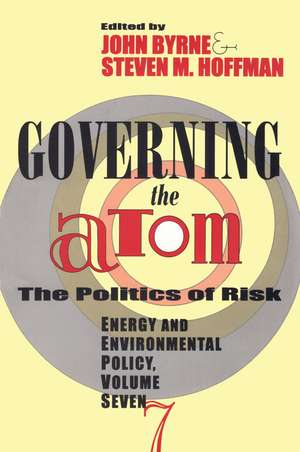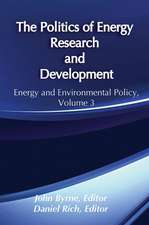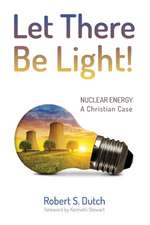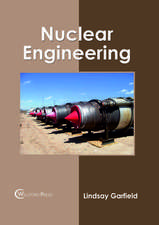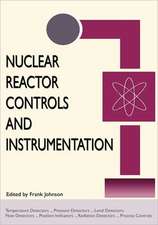Governing the Atom: Energy and Environmental Policy Series
Editat de John Byrne, Steven M. Hoffmanen Limba Engleză Paperback – 30 noi 1995
| Toate formatele și edițiile | Preț | Express |
|---|---|---|
| Paperback (1) | 181.43 lei 6-8 săpt. | |
| Taylor & Francis – 30 noi 1995 | 181.43 lei 6-8 săpt. | |
| Hardback (1) | 602.26 lei 6-8 săpt. | |
| Taylor & Francis – 30 ian 2024 | 602.26 lei 6-8 săpt. |
Din seria Energy and Environmental Policy Series
-
 Preț: 188.21 lei
Preț: 188.21 lei - 17%
 Preț: 190.88 lei
Preț: 190.88 lei -
 Preț: 416.22 lei
Preț: 416.22 lei -
 Preț: 437.13 lei
Preț: 437.13 lei -
 Preț: 452.31 lei
Preț: 452.31 lei -
 Preț: 183.48 lei
Preț: 183.48 lei
Preț: 181.43 lei
Preț vechi: 217.17 lei
-16% Nou
Puncte Express: 272
Preț estimativ în valută:
34.73€ • 36.12$ • 29.10£
34.73€ • 36.12$ • 29.10£
Carte tipărită la comandă
Livrare economică 13-27 martie
Preluare comenzi: 021 569.72.76
Specificații
ISBN-13: 9781560008347
ISBN-10: 1560008342
Pagini: 312
Dimensiuni: 152 x 229 x 23 mm
Greutate: 0.59 kg
Ediția:New.
Editura: Taylor & Francis
Colecția Routledge
Seria Energy and Environmental Policy Series
Locul publicării:Oxford, United Kingdom
ISBN-10: 1560008342
Pagini: 312
Dimensiuni: 152 x 229 x 23 mm
Greutate: 0.59 kg
Ediția:New.
Editura: Taylor & Francis
Colecția Routledge
Seria Energy and Environmental Policy Series
Locul publicării:Oxford, United Kingdom
Cuprins
Introduction, Part I: The Social Structure of Nuclear Power 1 The Ideology of Progress and the Globalization of Nuclear Power 2 Nuclear Policy as Projection: How Policy Choices Can Create Their Own Justification 3 Science, Society and the State: The Nuclear Project and the Transformation of the American Political Economy Part II: The Social Consequences 4 No One Ever Told Us: Native Americans and the Great Uranium Experiment 5 Safety, Accidents, and Public Acceptance 6 Waste Disposal and Decommissioning Part III: The Globalization of Nuclear Power 7 Nuclear Power and Postindustrial Politics in the West 8 Nuclear Politics in Soviet and Post-Soviet Europe, 9 The Asian Atom: Hard-Path Nuclearization in East Asia
Notă biografică
John Byrne is director of the Center for Energy and Environmental Policy and professor o f energy and environmental policy at the University of Delaware.
Descriere
Promoted as a form of limitless, low-cost energy without the polluting effects of its fossil fuel counterparts, nuclear power has enjoyed unparalleled support in several countries. Despite the development of an extensive set of policy and institutional mechanisms to foster its use, nuclear technology has been troubled by a wide range of problems and continues to pose risks many believe are far greater than society should accept.
